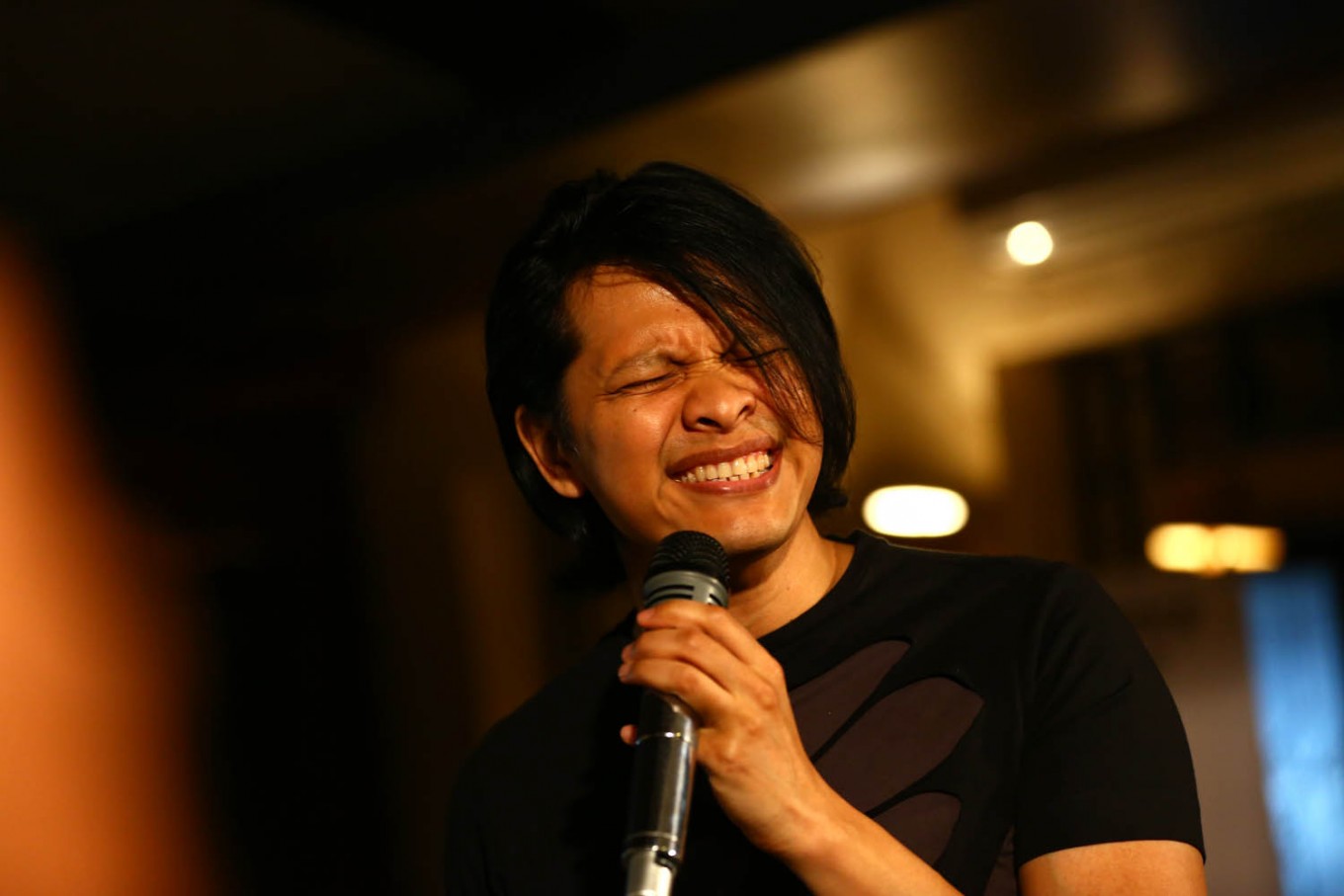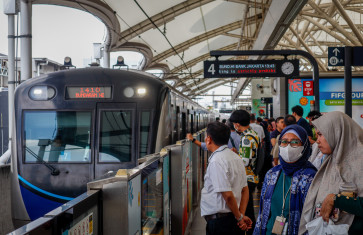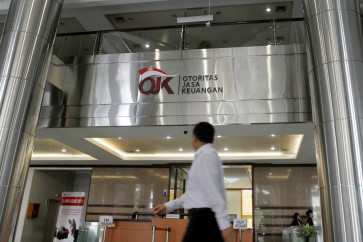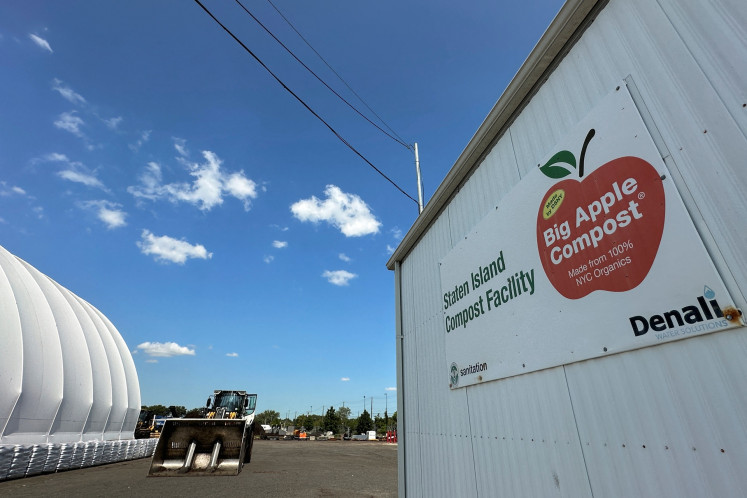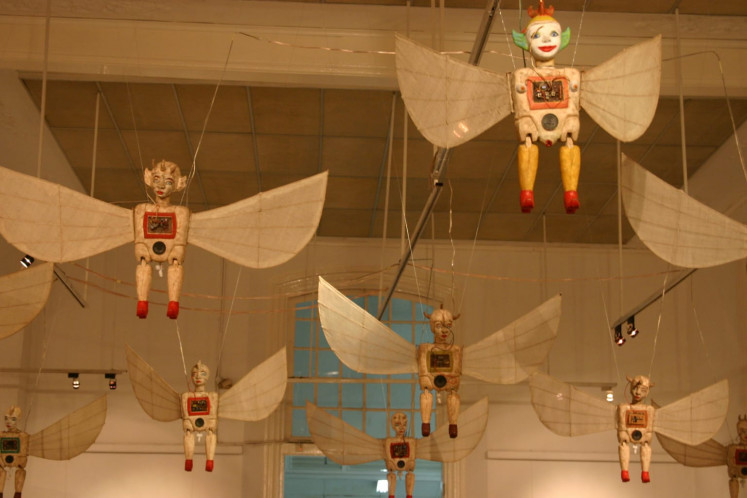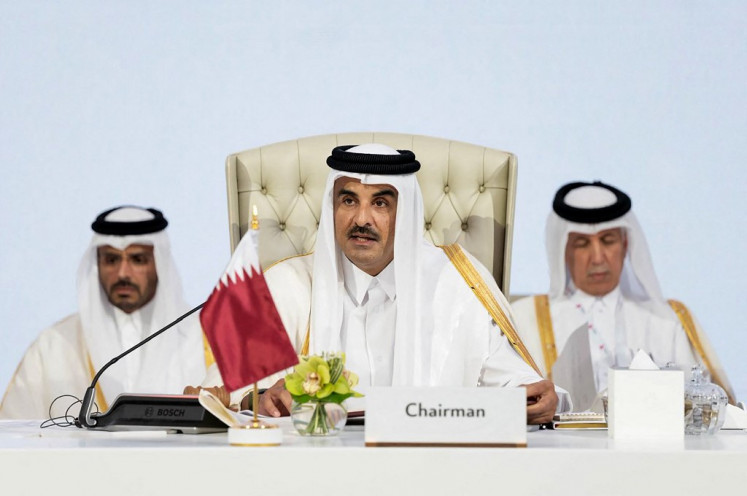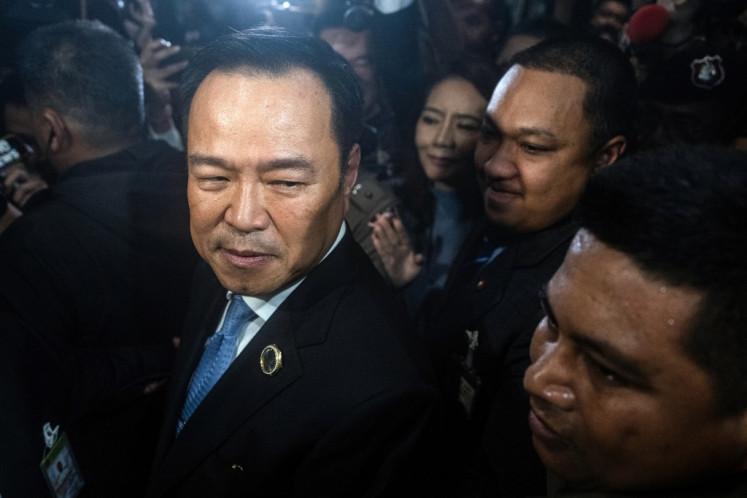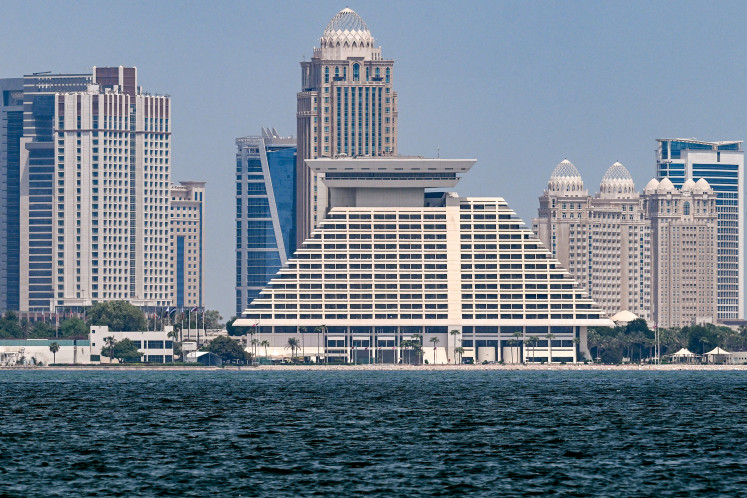Popular Reads
Top Results
Can't find what you're looking for?
View all search resultsPopular Reads
Top Results
Can't find what you're looking for?
View all search resultsStruggling music industry gets new lease on life
The new agency has 10 commissioners who work in two divisions — one dealing with patent holders and another for relevant rights. The agency’s commissioners have the obligation to collect royalty fees from patent users countrywide.
Change text size
Gift Premium Articles
to Anyone
A
rmand Maulana has had enough. After a 22-year career as a front man for the popular rock band Gigi, selling hundreds of thousands of the band’s records and rocking huge stages, he receives few financial rewards from royalties.
Armand said no royalties had been paid for the use of Gigi’s songs on television shows, at karaoke parlors or off-air events like weddings and parties.
“Never. Not even a penny,” the 45-year-old told The Jakarta Post in a recent interview.
With the popularity of Gigi’s songs like “Angan” (Imagination) and “Janji” (Promise), Armand found it hard to believe that no one wanted to sing the songs in karaoke parlors.
“It’s unbelievable, because, really, nobody wants to sing our songs in any karaoke establishment in the country?” he said.
As a result, Armand said Gigi relied on revenue from sales of its physical releases, in addition to playing live concerts and off-air gigs.
In the coming months, Gigi and numerous other popular bands in the country may regularly receive royalties from their songs as the government begins enforcing a new regulation that makes it mandatory for users to pay royalties for tunes used for 12 commercial activities, including bazaars and exhibitions, music concerts, pubs and bars, restaurants and karaoke parlors.
(Read also: Govt sets music royalty rates)
The list, drawn up by the National Collective Management Agency (LMKN), an outfit set up by the Law and Human Rights Ministry in January 2015, is an implementation of Law No. 14/2014 on patents.
The new agency has 10 commissioners who work in two divisions — one dealing with patent holders and another for relevant rights. The agency’s commissioners have the obligation to collect royalty fees from patent users countrywide.
“If they refuse to pay, they will be convicted,” said Salmon Pardede, investigation and dispute resolution director at the ministry’s intellectual property directorate general.
But before the agency could bring charges against offenders, it faced the challenge of setting royalty rates.
It took more than a year for the LMKN to come up with figures for the rates after holding discussions with relevant stakeholders within the music industry, including the Music Licensing Center of Indonesia (SELMI) and collective management organizations (CMOs) such as Yayasan Karya Cipta Indonesia and Royalti Anugrah Indonesia.
“The regulations are made to make sure that all patent holders get their royalties fairly because, you know, losses from music piracy in the country are tremendous,” Salmon said.
Piracy has dealt a severe blow to the music industry in Indonesia, reducing the market share to a miniscule 4.3 percent from 2007 to 2015, according to the Recording Industry Association (ASIRI).
Meanwhile, Association of Indonesian Songwriters and Music Arrangers (Pappri) data showed that music piracy had caused industry losses of at least Rp 4 trillion (US$308 million) annually.
To make matters worse for musicians, Selmi licensing manager Yessi Kurniawan said a large number of patent users, including karaoke parlor owners, declined to pay royalties because too many CMOs billed them with different rates. He said the issue would not occur again as the LMKN had become the sole collector of royalties. According to the new regulation, the LMKN could start collecting fees retroactively in accordance with the list, which applies for Jan. 1, 2015 to Dec. 21, 2017.
Different rates will apply for different types of establishments. Karaoke parlors, for instance, will pay a flat annual fee of between Rp 20,000 and Rp 300,000, depending on their space arrangements.
Herman Kemala, legal director of the Inul Vizta karaoke chain, said the rates were too high and could lead to slow business.
“The royalty rates were set without involving businesspeople in the process,” Herman said, as quoted by Kontan.

